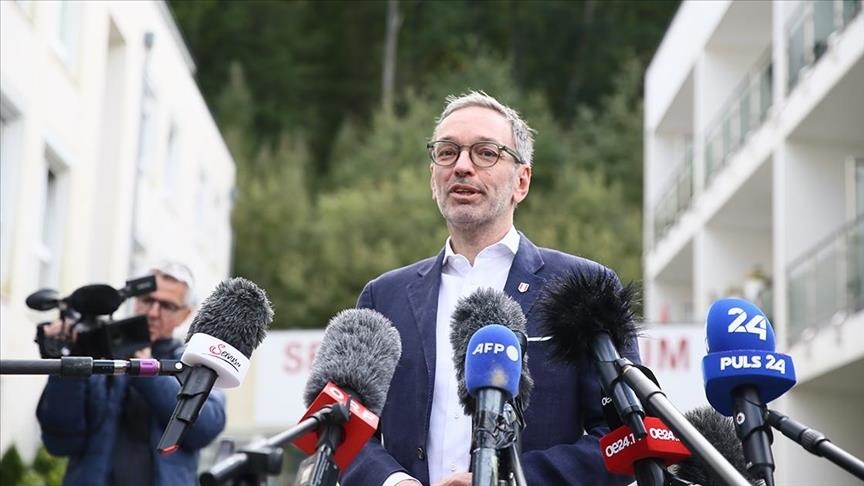Austria’s far-right party seeks to form government after election win, but challenges remain
FPO is the first far-right party to win elections since World War II, but forming a government is likely to be difficult

GENEVA
The far-right Freedom Party of Austria (FPO) finished first in Sunday's parliamentary elections, the first time since World War II, and subsequently strengthened its claim to government.
According to the preliminary final results announced by the Interior Ministry on Monday morning, the FPO won 29.2% of the vote. It is followed by the Austrian People's Party (OVP), currently led by Chancellor Karl Nehammer, with 26.5%.
The Social Democratic Party of Austria (SPO) follows in third place with 21.1%. The liberal party Das Neue Osterreich und Liberales Forum (Neos) comes in at 9%. The Greens, who previously governed in a coalition with the OVP, came in at 8% this time.
On the evening of the election, FPO leader Herbert Kickl emphasized his party's claim to leadership in the formation of a government.
“We are also prepared to lead a government,” said Kickl on Sunday evening at a discussion round of the leading candidates of the largest parties at the public broadcaster ORF.
Kickl did not rule out an alliance from the outset. “Our hand is outstretched in all directions,” the FPO party leader said.
He added that elections are the “centerpiece of democracy” and that the aim is to “determine who has the most votes: Who has the most votes?”
“From this perspective, the voters have put their foot down today,” Kickl continued.
However, it is likely to be difficult for the FPO to participate in government. All of Austria's other major parties refuse to cooperate with the FPO.
“What I say before the election, I will also say after the election,” Nehammer declared again in the ORF roundtable of party leaders after the election with regard to a rejection of a coalition with the FPO.
Andreas Babler, chairman of the SPO, now the third strongest party in parliament, also reiterated his rejection of a coalition with the FPO in the round table discussion. Babler described the election result as the “start of a journey.”
“The hand is outstretched,” Babler continued.
Austrian President Alexander Van der Bellen said in a press conference on Sunday evening that he will hold talks with all parties represented in parliament in the coming week.
“Now it's a matter of approaching each other, finding solutions and compromises. This may take time, but it is time well spent,” he said.
The Austrian constitution stipulates that the incumbent federal government must offer its resignation to the president in the course of the week.
The president will then instruct them to continue the administration. The president said at the press conference that the subsequent talks with the parties would be about “sounding out who can work with whom.”
He compared the phase of forming a government to the discipline of high jumping.
“There is a bar, and if you can't get over it on your own, you have to convince others,” said Van der Bellen.
This applies to “other parties but also to the Federal President,” Van der Bellen added.
Anadolu Agency website contains only a portion of the news stories offered to subscribers in the AA News Broadcasting System (HAS), and in summarized form. Please contact us for subscription options.







